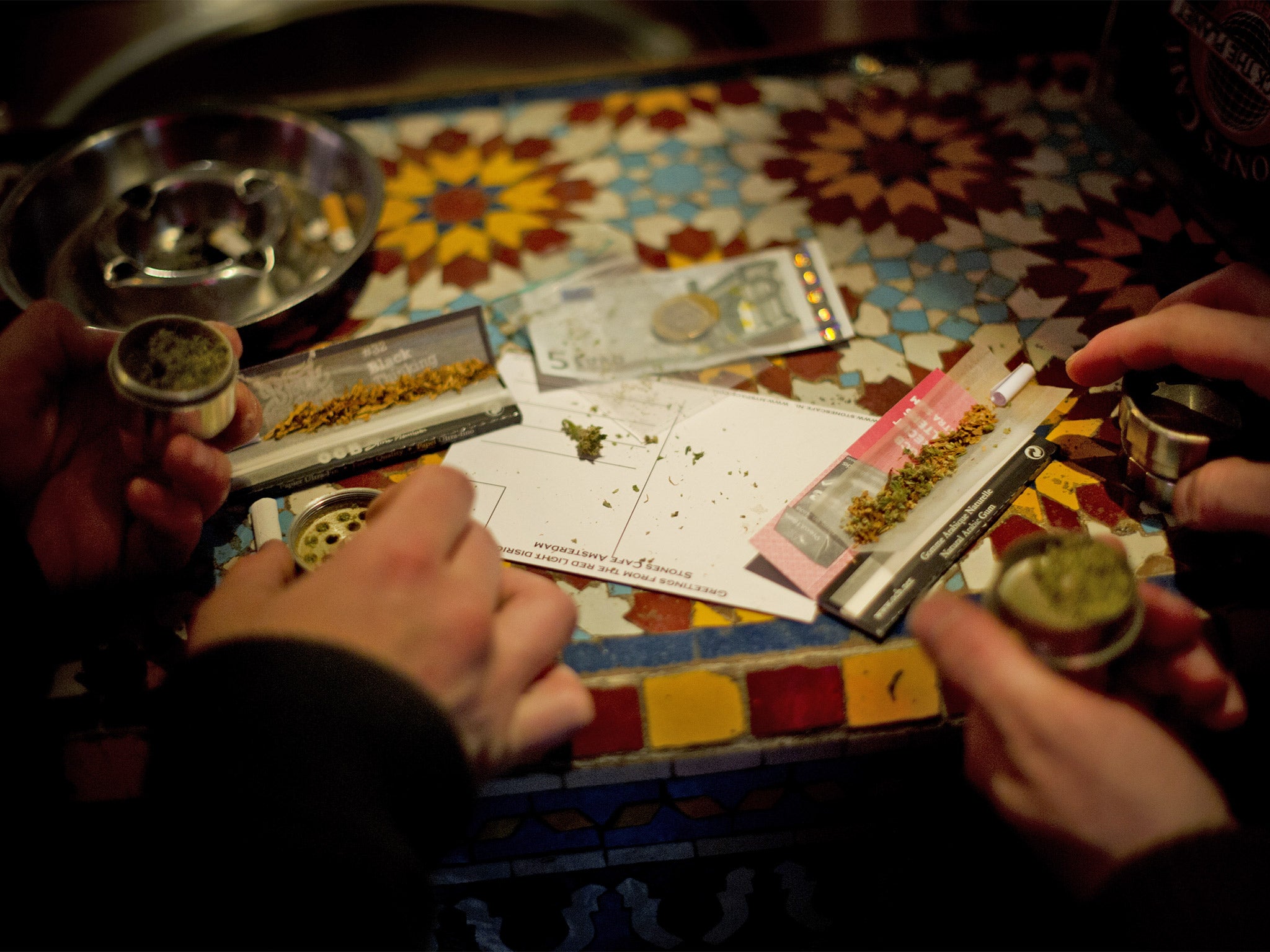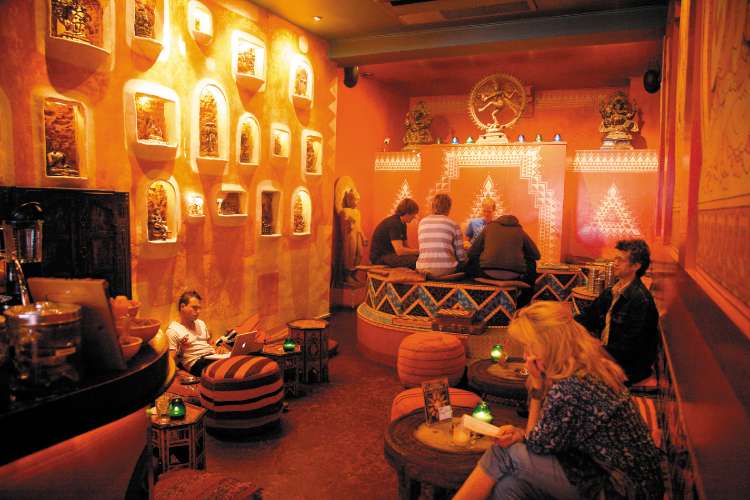Students banned from cannabis coffee shops 'more likely to pass exams,' a Dutch study claims
The 'partial-prohibition' sought to ban smokers from France and Luxembourg

Your support helps us to tell the story
From reproductive rights to climate change to Big Tech, The Independent is on the ground when the story is developing. Whether it's investigating the financials of Elon Musk's pro-Trump PAC or producing our latest documentary, 'The A Word', which shines a light on the American women fighting for reproductive rights, we know how important it is to parse out the facts from the messaging.
At such a critical moment in US history, we need reporters on the ground. Your donation allows us to keep sending journalists to speak to both sides of the story.
The Independent is trusted by Americans across the entire political spectrum. And unlike many other quality news outlets, we choose not to lock Americans out of our reporting and analysis with paywalls. We believe quality journalism should be available to everyone, paid for by those who can afford it.
Your support makes all the difference.Students who were banned from smoking legal cannabis in Dutch coffeeshops were found to be more likely to pass exams, specifically maths-based ones, according to researchers.
The findings were worked out during a temporary “partial-prohibition” of cannabis cafes in the city of Maastricht, in which people were not allowed to enter on the sole basis of their nationalities.
Students who were banned from the 13 coffee shops in the city have been 5.4 per cent more likely to pass their courses, economists at the University of Maastricht found.
The effect is “five times larger” for courses requiring quantitative thinking and maths-based tasks, the researchers wrote.
Lower performers – who had a pre-study GPA below the median of 6.62 – were most impacted by the ban with a 7.6 per cent increase in probability of passing a course. This may be down to ‘high’ achievers already getting top grades, regardless of cannabis consumption, they added.
The study comes after 20 US states legalised the use of medicinal cannabis and 14 others took some steps to decriminalise possession. Uruguay is planning to become the first nation in the world to fully legalise all aspects of the cannabis trade.
Women were also found to have higher improved grades than men, which researchers Olivier Marie and Ulf Zölitz believe is down to differences in processing high amounts of THC found in Dutch weed, which is often twice as strong as that in the US.
They also claim that grade improvements are not in correlation with any increases in effort or amount of study hours. The undergraduates have a median age of 20.6, and most of the improvements were also found in those who were the youngest.

Online evaluations filled in by the students showed that overall understanding of their courses improved the most when they did not smoke in coffeeshops.
“The effects we find are large, consistent and statistically very significant,” Marie told the Observer. “For example, we estimate that students who were no longer able to buy cannabis legally were 5% more likely to pass courses.
“The grade improvement this represents is about the same as having a qualified teacher and, more relevantly, similar to decreases in grades observed from reaching legal drinking age in the US.”
The seven-month policy implemented by the Maastricht association of cannabis-shop owners (VOCM) from October 2011, after pressure by local authorities, had sought to control weed smoking by “drug tourists” from neighbouring countries.

People from France and Luxembourg were found to be the “bad tourists,” according to the study, as they had been “creating the most nuisance” for the city’s residents.
Belgian and German citizens were allowed to use cannabis cafes and, including Dutch people, they comprise 90 per cent of all customers – which shows that the “partial prohibition” was only carried out on a minority of people.
Researchers admit that students who were banned could have got hold of cannabis illegally through friends and dealers, however they believe that the findings are significant enough to be considered when international drug laws are amended.
More than 54,000 grades were analysed of around 4,200 students. Fifty-two per cent were German, 33 per cent Dutch, six per cent Belgian and remaining eight per cent listed as “other”.
Join our commenting forum
Join thought-provoking conversations, follow other Independent readers and see their replies
Comments